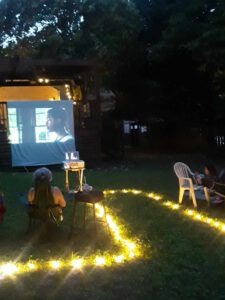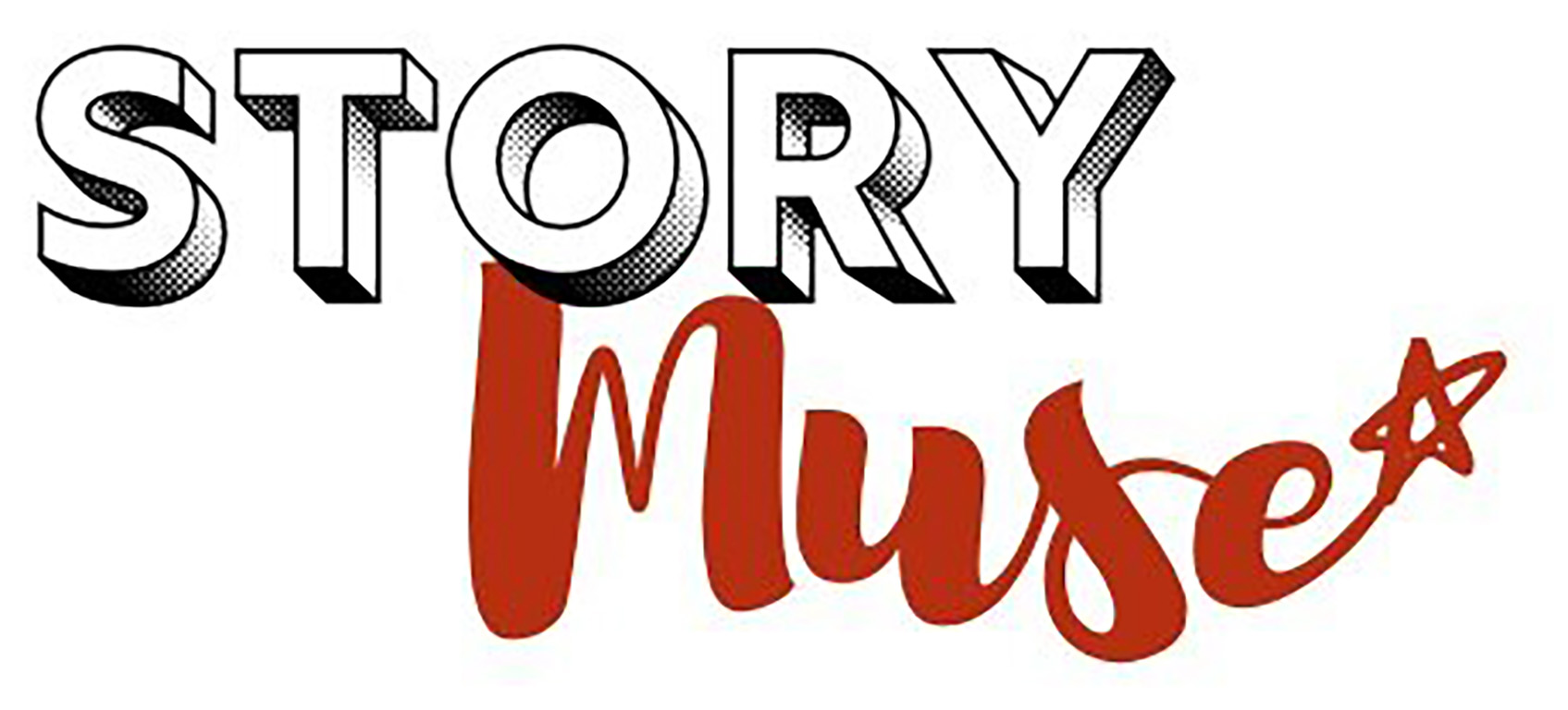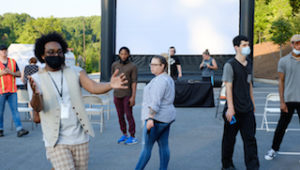For a long time, I had an annual film schedule–certain movies I returned to at the same time every year. Donnie Darko at Halloween, Home for the Holidays at Thanksgiving, and Groundhog Day at…duh! One of the things I loved about returning to these films, year after year, was how I noticed subtly different things each time I watched them, and observing how I was different in relation to them as time went by. For instance, it wasn’t until more recently that I caught a moment in When Harry Met Sally which radically shifted the film for me. Sally seems on the outside to be cool-as-a-cucumber and not-at-all interested in Harry romantically until late into the film. But there’s this moment early on, just after they’ve reconnected in adulthood and they’re both single for the first time. Sally asks Harry if he’d like to hang out and he assumes she means just as friends. There’s a subtle look of disappointment that crosses behind her eyes. It was the first time I’d noticed it and the whole thing turned on its ear. Sally, I think, spends the rest of the film waiting for Harry to get right with himself and come around. (Also, this.)
A few years ago, I started letting go of many films in my ritual because, as someone pointed out to me, I ostensibly wanted to bring change into my life and perhaps doing the same thing over and over again was not serving that purpose. And, hello, watching He’s Just Not That Into You on Valentine’s Day was perhaps not the most efficacious way to find my semi-permanent dance partner.

Why-ay-I-oh why, you left me! Oh, Sandy!
In 1984, before we were ready to invest in our own VCR, we went down to Adventureland Video on many Friday evenings to rent a giant VCR in its own royal blue soft-sided suitcase with yellow handles. We’d pick out three videos to rent for the weekend and lug them all home. My sister and I would watch all three videos, and typically one would become the favorite, which then got watched over and over until Sunday night when it was time to do homework.
Dirty Dancing was the all-time prize winner because my mom, sister, and I re-wound and watched the final dance sequence from the moment Johnny comes strolling in the backdoor at Kellerman’s until the moment he kisses and lifts Baby up off the floor…twelve times in a row.
Before Dirty Dancing there was Grease. It was not in my regular rotation as an adult, but we had the soundtrack on vinyl growing up. A quintessential scene in Grease, what makes it feel so hyper-located in its time is the long sequence that takes place at a drive-in movie theater.

My backyard social distancing film fest will remain one of my most poignant memories of the pandemic.
One of the things that got me through the pandemic was hosting pop-up film nights both in my own backyard, as well as part of the GCDD Storytelling Project. As hard as the long physical isolation of those first few years and social distancing was, having friends who were able to creatively come up with these fun solutions (and walks) was how I kept from going completely bonkers.
The other day, I heard someone on one of my podcasts refer to a hard thing in what feels today like a very antiquated term: “closure.” The word ricocheted back and forth between my ears, echoing through my brain with utter dissonance. I thought we’d all gotten closure on the notion of closure. [Insert sarcasm font here.]
The term closure indicates we’ve walked through a door and firmly closed it behind us. That’s it. *Swipes hands* Case closed.
I don’t know about you, but, as much as walking away from that door has its appeal, with all the monsters safely locked in the basement, I think it’s rather naive to imagine the creepy-crawlies won’t find their way out somehow to revisit us again.
For years, when I was coaching clients, I would refer to our stories as less about achieving closure and more like a wall. When we’re standing right up against a wall, it’s very hard to actually see it. We might see some two-inch-square part of it, observe its texture, but we won’t really know how big it is, or have any context for it. Only when we move farther and farther back can we begin to achieve some perspective on the entire thing.
When I heard this talking head–er, what do we call them now that they’re just in our ears? podcast pundits?–mention closure, I was also right in the middle of planning my next backyard film night. Suddenly, it all came together in one big, beautiful new image for me. Our stories are actually like drive-in movies!
At this particular Starlight Cinema, they’re playing our most beloved classics–romance, mystery, documentary, thrillers, whatever genre we choose. Aaaaaaand we play all the parts–the projectionists, the audience, the actors on the screen. In my case, also, the hopelessly-devoted-to-you, popcorn maker.
This is where that notion of perspective is really, really helpful. If we’re just coming through something, then it’s very hard to have any perspective–yet. We’re standing right up on it. It’s like being the first car on the first row, maybe even closer than that, craning our necks up and having the worst viewing experience of our lives. That’s why it might not be time to tell that story in public yet because otherwise we wind up floodlighting or having a terrible vulnerability hangover.
But, we start to tell it maybe to a few close friends, family, a therapist–whoever might feel safe. That helps us move a few rows back. Maybe, eventually, this story becomes a part of our repertoire. Trust me, I’ve known a few people who become stuck on a particular story that’s happened to them. They return to it over and over again in a fashion not unlike my annual film calendar.
I think this is why storytelling can be so helpful. It gives us a framework to break a story down, examine it and find the change, to organize and give a real stage to it (rather than just brooding, continuing to let it fester in our minds). And then, maybe, when we’re ready, we don’t have to be stranded at the drive-in any longer. We might even realize it’s time to start a new story.
P.S. I have to say that there was a lot about Grease that was completely lost on me when I was a kid. Those lyrics and themes were very grown up. In fact, I was today years old when I dug up the image to put in this post when I realized the not-so-subtle, suggestive, sexual imagery of that hot dog and bun cartoon in the background behind Danny Zuko. What can I say? I guess I’ll always be a little more Sally/Sandra Dee than Rizzo…(*some people are so touchy*)

